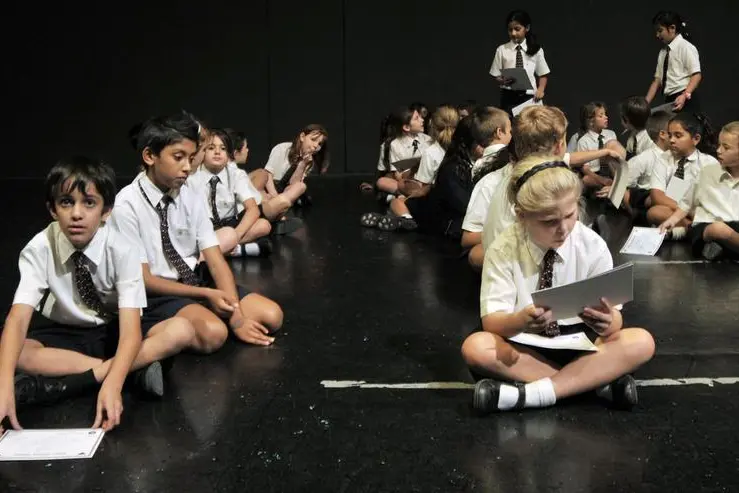PHOTO
Sunday, Jul 24, 2016
Abu Dhabi: With the summer heat restricting children’s outside activities many resort to play with tablets and smartphones to occupy themselves. It is also often easiest way to keep a child busy for parents who have to get on with their chores.
However, what is the downside to kids using technologies such as iPhones and iPads and should there be measures in place to monitor their use?
Gulf News spoke to a number of experts to explain how popular technology can affect children’s development and physical fitness.
“Screen time should be 30 minutes a day for iPads,” said Dr Dinesh Banur, head of Paediatric Services in NMC Royal Hospital, Abu Dhabi.
Dr Banur explains that tablets are a passive, one-way mode of communication similar to television, which can have a negative impact on a child’s communication skills. “Kids who are constantly engrossed in iPads begin to stop interacting with their parents and friends as much. They stop communicating.”
According to Dr Banur, children’s excess use of iPads can affect their sensory development, communication and speech “as everything is on a screen and they are not learning how different things feel”.
“We are already seeing the younger generation prefer WhatsApp or email rather than go over to speak to someone in their office or school or pick up the phone and have a conversation.”
He warns parents against using the technology for children’s distraction or main form of entertainment.
“They are not designed to be a toddler distraction therapy or to be used to coax them to eat. I have seen children sit with the iPad while their parent puts food in the mouth and they are not concentrating and enjoying food and understanding it … if a child has an iPad in their hand and someone else is putting food in their mouth, then they’re not enjoying the touch and feel of food and the process and enjoyment of learning to feed themselves.”
Dr Banur also said parents should be cautions as a child who is glued to a screen will be less physically active which can increase their risk of becoming obese.
He said while excess use of tablets can lead to late development, if the technology is used in a meaningful way that stimulates the brain such as using it to play jigsaw puzzles or chess for a controlled amount of time, it can have benefits. However, he said parents should be vigilant as it is easy to get addicted to it and over use the device.
He emphasised the importance of physical interaction and playtime. “It is very, very important for children to have playtime without mechanical devices.”
“Interaction is important for holistic development, bonding with peers and family, communication, play, touch and feel, exploring and learning to use their imagination and confidence,” he added.
Dr Banur’s views are echoed by Dr Afaf Mansour Mahfouz, consultant psychiatrist at Al Noor Hospital, Abu Dhabi.
“Studies show IQ scores of children who use iPads (tablets) for learning are high on the non-verbal parts … but low on the verbal part. It causes some social isolation that can limit speaking,” she said.
“More physical play without the use of mechanical devices will teach the children how to channelise their energy in a productive manner. Playing with peers also teaches them the lessons of sharing, participation, how to take turns and work as a team,” she added.
Benita Ninan is an intern with Gulf News.
By Sarvy Geranpayeh Staff Reporter Benita Ninan Special to Gulf News
Gulf News 2016. All rights reserved.





















